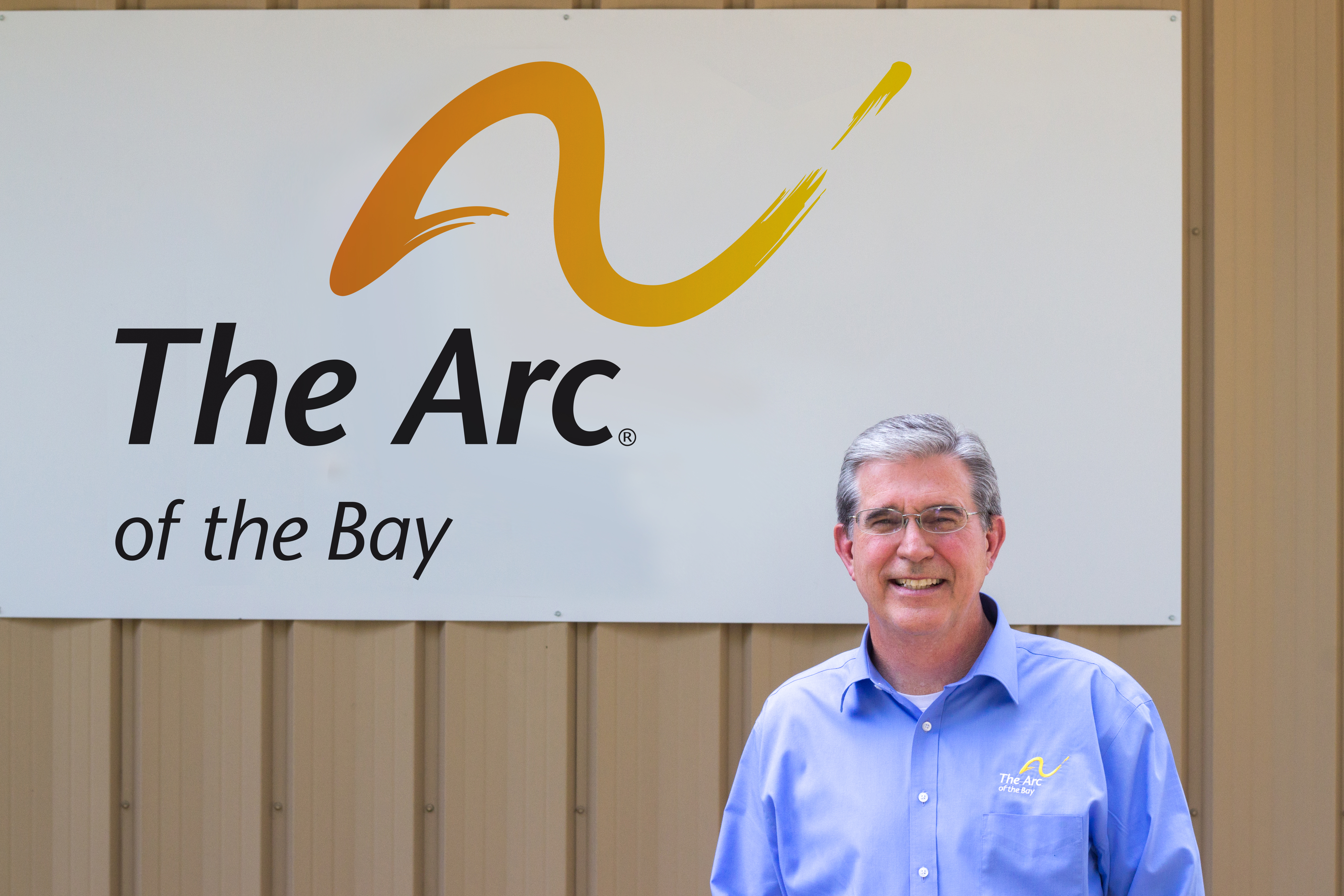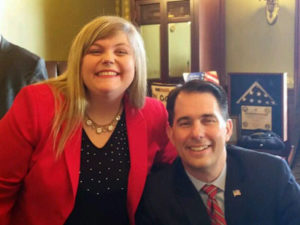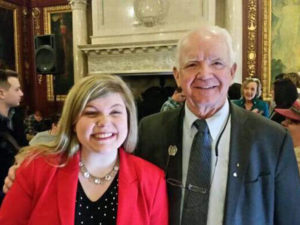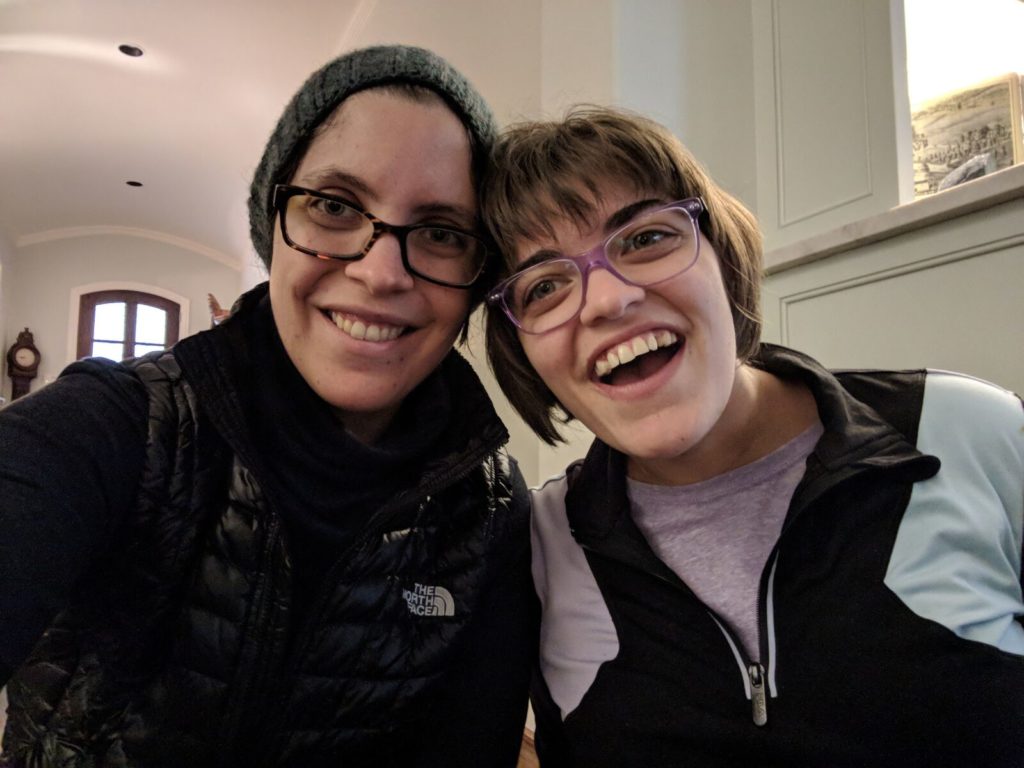The Arc of the Bay: Thinking Outside the Box to Improve Their Chapter and Community

The Arc of the Bay in Florida has had an exciting few months! In 2017, the chapter affiliated and branded with the national office – executed seamlessly by their executive director Ron Sharpe. This past month, the chapter participated in a summit focused on transitioning from facility-based to community-based employment. Ron reflected with us on the challenges and opportunities that strengthen and propel his chapter forward as they continue to advance our universal mission of inclusion for all.
First, we wanted to formally welcome you to our chapter network; your chapter recently rebranded and joined forces with the national office! What initiated that process?
We were strategically planning on how we were going to celebrate and fully maximize our upcoming 60th anniversary in 2017. We had a focus group & graduate students from our local Florida State University – Panama City Campus provide research & feedback that while we have been in Bay County, FL for 60 years, many families and businesses still didn’t know who we were, St. Andrew Bay Center, and what our mission was. We were already affiliated with The Arc of Florida, and when we reviewed what The Arc of the U.S. had to offer, we knew it would only strengthen our daily operations with the wide range of resources that would be made available to our agency…including branding and name recognition. 2017 represented the largest overall growth that we have experienced within the past 10 years in every facet of our business model…double-digit increases in our ADT enrollment, Supported Employment services and including our overall fundraising.
At the end of last month, you attended the Provider Transformation Network Summit in DC on transitioning from facility-based employment to community-based employment programs, along with four other chapters. What motivated you to attend, and what were some of your takeaways?
I attended the PTN Summit hoping to learn from other leaders within those four chapters in what they found to be successful or not within their communities within this transition. I was able to hear that we are all experiencing some of the same struggles and opportunities, but learned of different or new ideas to hopefully getting new results. We all came from different levels of years of experience, but through our ideas and building relationship, we now have another resource network to continue to build upon as we continue to work through this transition.
The national landscape is changing, with an increasing emphasis on community employment opportunities for individuals with IDD. How is this affecting the direction of your organization as it relates to employment services? What kind of work are you doing in your chapter to advance community-based, gainful employment for people with IDD?
The Arc of the Bay has fully embraced this process ranging from implementing an initiative of The Arc of Florida “Dream Inspired Planning” where our individuals shared what their job goals are communicating through pictures on their own dream boards to promoting individuals and their job skills and experience in our local paper every Friday in a section we created and titled “Employment Highlight”. The process with “Dream Inspired Planning” reinforces “self- advocacy and self-determination in setting future goals on what they would like to do. We also use every social media to advocate on behalf our clients, our employers and our staff on the successes made.
Do you have any advice for other chapters looking to strengthen their employment initiatives?
Sounds so simple, but think out of the box when thinking about new employment opportunities! Everything we do is “NETWORKING” and making contacts. Look at civic clubs, like your local Rotary or your chamber of commerce.






 Meet Joe Damiano! Joe is 23 years old and is a very active advocate in his home state of New York. Joe is the outreach director for The Arc’s National Council of Self-Advocates, a board member for a local non-profit, and the former chair of a self-advocacy group called the Collaborative of New York.
Meet Joe Damiano! Joe is 23 years old and is a very active advocate in his home state of New York. Joe is the outreach director for The Arc’s National Council of Self-Advocates, a board member for a local non-profit, and the former chair of a self-advocacy group called the Collaborative of New York.





